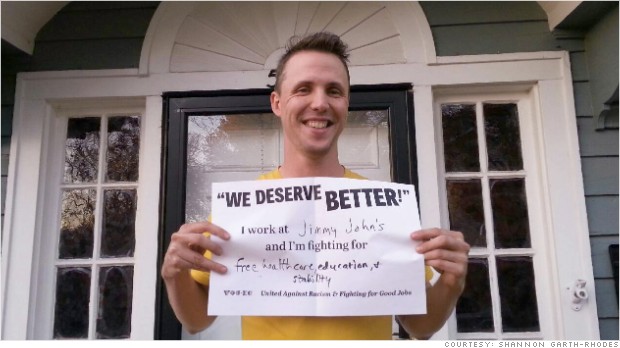Stephen Lendman
RINF Alternative News
It’s the world’s largest financial market. It trades around $5
trillion daily. It’s more than all global equity markets combined. It
operates round-the-clock. It’s manipulated for profit.
Grand theft reflects official Wall Street policy. Bankers make money the old-fashioned way.
They do it through fraud, grand theft, market
manipulation, front-running, misrepresentation, scamming investors,
naked short selling, precious metals price suppression, controlling
Washington, getting open-ended low or no interest rate bailouts when
needed, and assuring world financial capitals are banker occupied
territories.
They do it artfully. Few people know what’s going on. Scandals rarely
surface. Budding ones are usually buried. Little more than dust gets
kicked up. Headlines disappear in short order.
In June 2012, JPMorgan Chase CEO Jamie Dimon testified before the
Senate Banking Committee. He discussed his firm’s trading losses at the
time.
It was more of a homecoming than grilling. Washington is Wall Street
occupied territory. Regulators don’t regulate. Oversight is absent.
Investigations rarely happen. Initiated ones are whitewashed. Criminal fraud is institutionalized. It’s encouraged, not curbed.
Congress, the administration, SEC, and credit rating agencies
incestuously collude with giant banks and other major financial
institutions. Whatever they want, they get.
Wall Street never had it so good. Senators didn’t lay a glove on Dimon. His grand theft business model wasn’t discussed.
Former bank regulator/financial fraud expert Bill Black’s book titled
“The Best Way to Rob A Bank Is To Own One” explains well.
He coined the term “control fraud.” It lets corporate officials
commit grand theft. Finance capital never had it so good. Trillions of
dollars are stolen. Nothing intervenes to stop it.
MF Global (MFG) looted customer accounts. Former Goldman Sachs chairman/CEO Jon Corzine ran operations.
MFG faced a run on its holdings. In October 2011, it filed for Chapter 11 bankruptcy protection.
Months before doing so, it moved hundreds of millions of dollars in
customer money from its US brokerage unit to Bank of New York Mellon
Corp.
It looted them. It used client money to speculate, pay down debt and
cover losses. It committed grand theft. It’s longstanding Wall Street
practice.
Why not when rare punishments at most are wrist slaps. Top Wall Street officials aren’t punished. They free to steal again.
Markets are rigged. Movements up or down aren’t random. The
Wall Street controlled Fed and high-level insiders manipulate them for profits.
Washington facilitates their lawlessness. It does it with business
friendly legislation. It does it with similar executive orders. It does
it by turning a blind to the worst of what goes one.
Market rigging is longstanding practice. It’s part of the system. On
March 18, 1989, Ronald Reagan’s Executive Order 12631 created the
Working Group on Financial Markets (WGFM).
It’s commonly called the Plunge Protection Team (PPT). Officials involved (or their designees) include:
- the Treasury Secretary as chairman;
- the Commodity Futures Trading Commission chairman.
PPT’s “Purposes and Functions: Recognizing the goals of enhancing the
integrity, efficiency, orderliness, and competitiveness of our Nation’s
financial markets.”
”(T)he Working Group shall identify and consider:
(1) the major issues raised by the numerous studies on the events
(pertaining to the) October 19, 1987 (market crash and consider)
recommendations that have the potential to achieve the goals noted
above; and
(2)….governmental (and other) actions under existing laws and
regulations….that are appropriate to carry out these recommendations.”
Government and Wall Street collude. They manipulate markets doing so.
They move them up and down. Enormous profits are made both ways. Most
people don’t know what goes on.
Wall Street/Washington invisible hands work better than Adam Smith imagined. They do it in dirty ways unknown in his day.
Mythology holds that prices move up or down randomly. Market forces do so, it’s claimed. Manipulation isn’t mentioned.
It’s commonplace. It’s longstanding. Tools are much more sophisticated than earlier. Computer
technology facilitates blatantly illegal practices.
The 1934 Gold Reserve Act created the Treasury’s Exchange Stabilization Fund (ESF).
Section 7 of the 1944 Bretton Woods Agreements made its operations permanent.
The Treasury runs the Fund. Congressional oversight is bypassed.
Manipulation keeps sharp dollar fluctuations up or down from disrupting
financial markets.
Treasury operations include stabilizing foreign currencies, extending
credit lines to foreign governments, and guaranteeing money market
funds against losses up to tens of billions of dollars.
In 1995, Clinton provided Mexico a $20 billion peso credit stabilization line. It did so in time of crisis.
Earlier administrations extended loans or credit lines to various
other countries. Current US lending to the IMF tops $35 billion.
Years earlier it was $57 billion. In 2009, Congress expanded contributions by $108 billion. The Treasury’s web site states:
“By law, the Secretary has considerable discretion in the use of ESF resources.”
“The legal basis of the ESF is the Gold Reserve Act of 1934.”
“As amended in the late 1970s….the Secretary (per) approval of the
President, may deal in gold, foreign exchange, and other instruments of
credit and securities.”
In other words, the Treasury maintains a slush fund. It uses it for
whatever purposes it wishes. It manipulates markets. It operates
secretly.
In 1999, the Counterparty Risk Management Policy Group (CRMPG) was
established. It followed the Long Term Capital Management (LTCM) crisis.
CRMPG manipulates markets beneficially for Wall Street giants. It
lets them collude through large-scale program trading. Doing so
manipulates markets up and down advantageously.
Troubled giants get bailed out. Ordinary people get sold out. The
process repeats as needed. A secret FDIC plan involves looting bank
accounts.
Depositor theft may follow. Doing so is called bail-ins. It’s code language for grand theft.
Ordinary people and richer ones have trillions in bank accounts. It’s
low-hanging fruit. It’s a treasure trove begging to be looted.
Legislative shenanigans may legitimize it.
Cypriot officials did it. Canada approved it. So did Eurozone member states and New Zealand. It’s theft by other means.
Leading US banks warned about charging depositors. They may do so if the Fed cuts interest it pays them on bank reserves.
Imagine being charged for checking, savings and/or money market
accounts. Depositors already earn virtually nothing on them. Penalizing
them further may follow.
Libor markets are rigged. It’s an acronym for London Interbank
Offered Rate. It’s a fundamental rate-setting benchmark. It’s set daily
between UK banks for overnight to 12 month durations.
It’s produced for ten currencies with 15 maturities. It represents
the London market’s lowest cost of unsecured funding. It’s the primary
global short-term rate benchmark.
In the 1980s, it began expanding exponentially in importance.
London’s status grew as an international financial center. It’s the
world’s largest.
It handles over 20% of all international bank lending. More than 30% of foreign exchange transactions go through London.
Demand grew for an accurate measure of the real rate at which banks
and other financial institutions could borrow from each other.
It affects the price and availability of capital. The higher Libor
goes, the greater the borrowing cost for business, individuals, real
estate and other loans.
When things work right, operations are hardly noticed. When trouble occurs, all hell breaks loose.
Libor rigging affects countless trillions of dollars. Amounts involved exceed global GDP multiple times over.
Predatory banks manipulate things advantageously. Practices are too
corrupted to fix. The longer they go unaddressed, the more harm done.
Financial giants, central bankers and complicit politicians bear full responsibility. Dirty policies persist out-of-control.
Libor rigging is one of many manipulative market practices. Systemic
corruption breeds more of the same. An illusion of stability conceals business as usual.
Gold and other precious metals markets are rigged. Naked short selling offsets rising bullion demand. Prices are driven lower.
Naked shorts reflect what sellers don’t have. It’s illegal. It
persists anyway. Bullion prices would be much higher otherwise.
Eventually they’ll rise to their true value. When remains to be seen.
QE reflects Fed market rigging. Treasuries and mortgage-backed
securities are bought. Too-big-to-fail banks hold enormous amounts of
junk. Fed buying substitutes dollars for toxic assets.
Banks get lots of cash to speculate. Markets are manipulated up in
response. It’s artificial. It’s not real. It can’t last. It continues
until bubbles eventually pop.
Foreign exchange markets are rigged. On October 12,
The Economist headlined “The FX is in,” saying:
It’s “been a dreadful couple of years for financial benchmarks.” Banks rig libor. “Commodities prices from crude
oil to platinum have been the subject of allegations and inquiries.”
Authorities now scrutinize global foreign exchange (FX) markets.
Trillions of dollars are involved daily. “(S)uspect banks have tampered
with those, too.”
On October 4,
Reuters headlined
“Switzerland probes banks over possible forex rigging.” FINMA said it’s
“currently (investigating) several Swiss financial institutions in
connection with possible manipulation of foreign exchange markets.”
It’s coordinating with regulators in other countries. “(M)ultiple banks around the world are potentially implicated.”
UBS is Switzerland’s largest bank. It was fined $2.7 billion for
market rigging. Credit Suisse may be involved. So are major Wall Street
banks.
Bloomberg said major ones use advance customer order knowledge to push through trades manipulatively.
They colluded with other banks doing so. FX markets are poorly
regulated. Most trading takes place away from exchanges. It’s a shadowy
anything goes realm.
Price rigging is standard practice. Hundreds of banks trade
currencies. Four dominate the market: Deutsche Bank, Citigroup, Barclays
and UBS.
Concerns center around what’s known as the “London Fix.” It’s a daily snapshot of currency prices.
Enormous shifts happen during a 60-second window before 4PM London time. It’s when markets are especially liquid.
Banks set a certain rate for trades of one currency against another. Shortly afterwards, prices revert to normal rates.
Forex traders call the practice banging the close. It reflects
blatant market manipulation. Betting the right way yields huge profits
in seconds.
A fraction of a cent is all it takes. Trading involves a measure called a “pip.” It represents one basis point or 1/100th of
1%.
Multiple trades near the London Fix can yield enormous profits.
Repeating the process many times daily multiplies it hugely. A few pips
in the right direction is all it takes.
The so-called WM/Reuters (WMR) rate works as follows. It’s when “more
than 40% of daily global FX trading is done. It’s the nearest thing to a
closing price in a 24-hour, self-regulated market.”
Unwary traders are fleeced big time. Banks know big trades they’ll execute on behalf of others.
Moving forex prices ahead of the fix yields big profits. Major banks do it at the expense of unsuspecting clients.
According to New York University’s Stern School of Business Professor Marti Subrahmanyan:
“There’s no policeman. These things have sort of fallen through the cracks. Foreign exchange is really nobody’s kind of baby.”
Major forex traders collude in electronic messaging groups. They’re called “the bandits club” and “the cartel.”
They profit at the expense of clients. They do so by manipulating
markets up or down. Regulators do virtually nothing to stop it.
Investigations come and go. Minor penalties at most are imposed. It’s
part of the system. It shifts enormous wealth to major players.
Forex trading is a buyer’s beware market. Traders call it the wild
west. Volatility is valued. Sharply enough rice movements create profit
opportunities. Stability minimizes them.
Manipulation is part of the system. Forex trading shenanigans reflect grand theft. Who said crime doesn’t pay?
Stephen Lendman lives in Chicago. He can be reached at [email protected].
His new book is titled “Banker Occupation: Waging Financial War on Humanity.”
http://www.claritypress.com/LendmanII.html
Visit his blog site at sjlendman.blogspot.com.
Listen to cutting-edge discussions with distinguished guests on
the Progressive Radio News Hour on the Progressive Radio Network.
It airs Fridays at 10AM US Central time and Saturdays and Sundays at noon. All programs are archived for easy listening.
http://www.progressiveradionetwork.com/the-progressive-news-hour
 final say.
final say.








